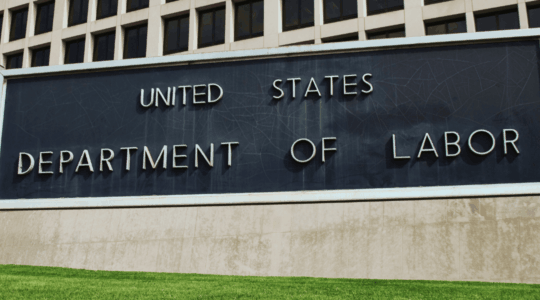Construction
DOL Updates Construction Worker Wages Under the Davis-Bacon Act and Related Acts
September 12, 2023
On Aug. 8, 2023, the U.S. Department of Labor (DOL) announced a final rule that updates how wages for construction workers are calculated under the Davis-Bacon Act (DBA) and Related Acts (DBRA). The final rule will be effective 60 days after its publication in the Federal Register.
Background
Under the DBA, employers must pay locally prevailing wages and fringe benefits on federal contracts for construction. The DBA applies to workers on contracts entered into by federal agencies and the District of Columbia if they are in excess of $2,000 and for the construction, alteration or repair of public buildings or public works.
The DBA’s prevailing wage requirement was subsequently incorporated into numerous statutes, collectively referred to as “Related Acts.” Under the DBRA, federal agencies must assist construction projects through grants, loans, loan guarantees, insurance and other methods.
On March 18, 2022, the DOL published a proposed rule to update DBRA provisions that regulate wage rates for federal and federally assisted construction projects. The proposal sought to modernize wage determinations and regulatory language to reflect current construction practices.
DBRA Updates
After reviewing public comments on the proposal, the DOL’s final rule updates the DBRA by:
- Creating new efficiencies in the prevailing wage update system and making sure prevailing wage rates keep up with actual wages, which, over time, would mean higher wages for workers;
- Returning to the definition of “prevailing wage” used from 1935 to 1983 to ensure prevailing wages reflect actual wages paid to workers in the local community;
- Periodically updating prevailing wage rates to address out-of-date wage determinations;
- Providing broader authority to adopt state or local wage determinations when certain criteria are met;
- Issuing supplemental rates for key job classifications when no survey data exists;
- Updating the regulatory language to better reflect modern construction practices; and
- Strengthening worker protections and enforcement, including debarment and anti-retaliation provisions.
Impact on Employers
This final rule applies only to employers and contractors subject to the DBRA. Affected employers should review the final rule and prepare to comply with updated DBRA requirements as of the final rule’s effective date.
Hylant’s Perspective:
- The move is aimed at raising the hourly earnings of workers for prime contractors and subcontractors on projects that receive federal funding through legislation such as the Infrastructure Investment and Jobs Act and the CHIPS Act, but construction groups said it will raise the cost of infrastructure projects for taxpayers.
- If you are an open-shop contractor bidding on federal projects, this could impact your ability to bid competitively on federal projects.
- Hylant can provide guidance on how utilizing fringe wages towards bona fide benefits (health and welfare, retirement, vacation, and training) can still positively impact workers while controlling increases in payroll, thus minimizing payroll taxes for the employer.
The above information does not constitute advice. Always contact your insurance broker or trusted advisor for insurance-related questions.


